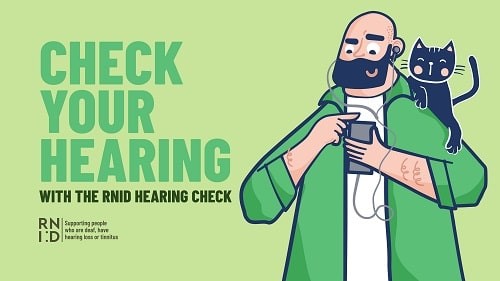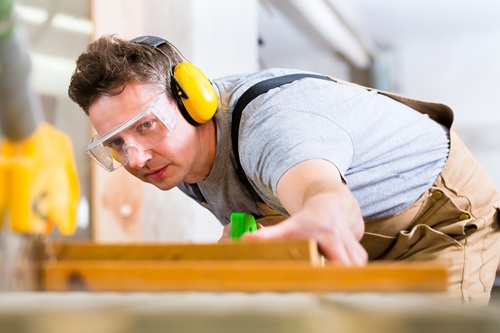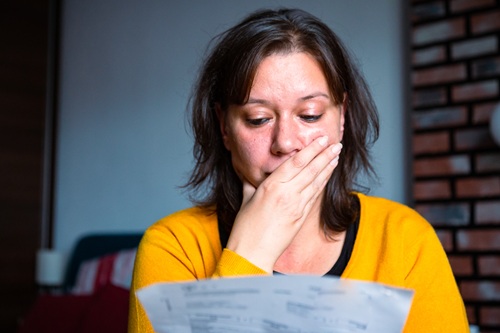Unmanaged hearing loss can have a significant impact on our health and wellbeing, so employers should educate employees about how best to protect their hearing and encourage everyone to check it regularly.
Features
Why it’s vital to take care of your hearing
Noise-induced hearing loss is the second biggest cause of hearing loss in the UK, but it’s also the most preventable. It’s essential that we all look after our hearing at work and at home by following safe listening practices.
Over-exposure to loud noise can damage your ears before you know it, causing permanent hearing loss and tinnitus – ringing or buzzing in your ears.
There are two factors that increase the risk: how loud the sound is, and how long you are exposed to it for. If you are exposed to a sound over 85 decibels (the level of a food blender) for more than eight hours, this can cause permanent hearing damage. However, every time the decibel level increases by three, the length of safe exposure time halves.
If you are in a room with a sound louder than 100 decibels (such as a nightclub), you have less than 15 minutes before damage to the inner ear starts.
Employers in Great Britain have a legal duty to protect the hearing of their employees under the Control of Noise at Work Regulations 2005. The regulations say that if you are exposed to loud noise at work, your employer must have noise levels assessed, and keep a record of the assessment. If noise exposure reaches 80 decibels (dB), employers are legally bound to start taking action.
 Photograph: RNID
Photograph: RNID
If employees work in a noisy environment, or if their work involves listening to loud sounds through headphones or earpieces – employers should make sure that they have hearing protection.
Noise outside work
The workplace isn’t the only environment in which employees could be at risk of noise induced hearing loss.
You may also be exposed to noise that’s dangerously loud if you go to concerts, listen to music through headphones, play video games, shoot for sport, ride a motorbike or use power tools. If you find you can’t hear properly or have ringing in your ears for a few hours afterwards, it’s a sign you’ve been exposed to noise that’s loud enough to damage your ears and you may have developed a slight and permanent hearing loss. If you keep exposing yourself to loud noise, this damage will become more noticeable and permanent over time.
The World Health Organization estimates that over a billion young people are at risk from noise-induced hearing loss because of unsafe listening practices. Research has also shown that people who play video games could be at risk of damaging their hearing.
Tips for safe listening
You might not always be aware how loud sound is, but if you can’t hold a conversation with someone more than two metres away without shouting, then it’s too loud. If you use a smart watch or smart phone, this may alert you if you exceed safe volume limits.
These tips will help you protect your hearing, so you can carry on doing the things you enjoy:
- If you listen to music through headphones, don’t exceed safe volume limits, and don’t ignore warnings from your device that the sound is too loud.
- If you use headphones in a noisy environment (such as public transport), consider investing in some with noise cancelling technology, so you aren’t increasing the volume to a dangerous level to mask background noise.
- Take regular breaks from loud noise by having five minutes off for every hour of listening.
- For gamers, turn the volume down – 50 per cent is a good benchmark. Some games let you adjust sound levels for special effects and music.
- If you enjoy concerts or nightclubs, get a pair of reusable ear plugs. These are designed to filter out the harmful sounds but not compromise sound quality.
- If noise is so loud that it hurts your ears, immediately leave or stop the activity that’s causing the noise – and use hearing protection in future.
Hearing health
Hearing health has been dubbed a key wellness trend for 2024, so there’s never been a better time to get employees thinking about their hearing.
It’s important to take care of your hearing in the same way that you do your eyes and your teeth, by checking it regularly and taking action if you notice anything wrong.
 Teri Devine is associate director of inclusion and employment at RNID
Teri Devine is associate director of inclusion and employment at RNID
RNID’s free online hearing check is a great place to start, and can easily be rolled out to employees.
Getting support early
Unmanaged hearing loss can have a significant impact on your health and wellbeing, and research shows that it can cause isolation, double the risk of mental health problems and increase the risk of dementia by up to five times. Evidence suggests that hearing aids may reduce the risk of cognitive decline, so it’s important to get support early on.
Signs of hearing loss
The most common signs that someone might have hearing loss are:
- Turning the TV up louder than others want it
- Finding it hard to follow conversation in pubs and restaurants
- Struggling to hear on the phone
- Often asking people to repeat what they say
- Having your partner complain that you don’t listen to them
- Feeling that other people mumble.
Supporting employees who are deaf or have hearing loss
Given the right support, people who are deaf or have hearing loss can thrive at work.
Sadly, however, we know there are many barriers to employees seeking and receiving support. Over half of people with hearing loss do not disclose it to their employer, their manager or their colleagues because they feel embarrassed, they think they may be treated differently, and they worry it will have a negative impact on their job prospects.
Deaf people and people with hearing loss are less likely to be employed than the general population (this is especially true for people who use British Sign Language). Many people with hearing loss experience stress at work, and it is a contributor towards early retirement.
With one in eight people of working age living with hearing loss, and this set to increase as the population ages, it’s vital that employers know how to support staff and enable them to reach their potential. To do this businesses can:
- Share the link to RNID’s online hearing test. Staff will get results confidentially, with advice about what to do next
- Use key weeks like Deaf Awareness Week (6–12 May 2024) to raise the profile of hearing loss in the workplace (sign up to our newsletter for updates).
- Make recruitment, offer and induction stages accessible by giving candidates the opportunity to tell you about adjustments they need, offering workplace assessments, and giving staff the opportunities to share experiences.
- Create a culture where employees can talk about hearing loss through one to ones, staff-led networks, and communication from senior leaders.
- Provide Deaf Awareness Training for all staff.
- Ensure line managers are confident managing staff who disclose hearing loss and know how to implement reasonable adjustments. This could include assistive equipment or communication support, evacuation plans, or simply where someone sits in the office.
- Make the work environment and meetings accessible
- Follow RNID’s communication tips for staff and customers with hearing loss.
Teri Devine is associate director of inclusion and employment at RNID
For more advice, contact RNID at:
Tel: 0808 808 0123
Email: [email protected]
FEATURES

How to mitigate the hearing loss cost escalation tsunami
By Peter Wilson, Industrial Noise and Vibration Centre (INVC) on 06 February 2026
Employers need to adopt the latest and most effective noise risk evaluation and management measures, or face rapidly-rising compensation claims for noise-induced hearing loss at work.

Young drivers and work-related road risk: why employers must act now
By Simon Turner, Driving for Better Business on 06 February 2026
Young drivers have a higher risk of being involved in road collisions due to factors such as their inexperience, so when employing them to drive for work, it is vital they receive the right support to help them grow into safe professionals behind the wheel.

Financial stress: why and how it affects workplace safety
By Chloe Miller, freelance writer on 06 February 2026
Financial worries can lead to cognitive impairment that increases the risk of workplace accidents, so it’s essential employers provide financial education and confidential support for workers who may be struggling with problems like debt and unexpected living expenses.



